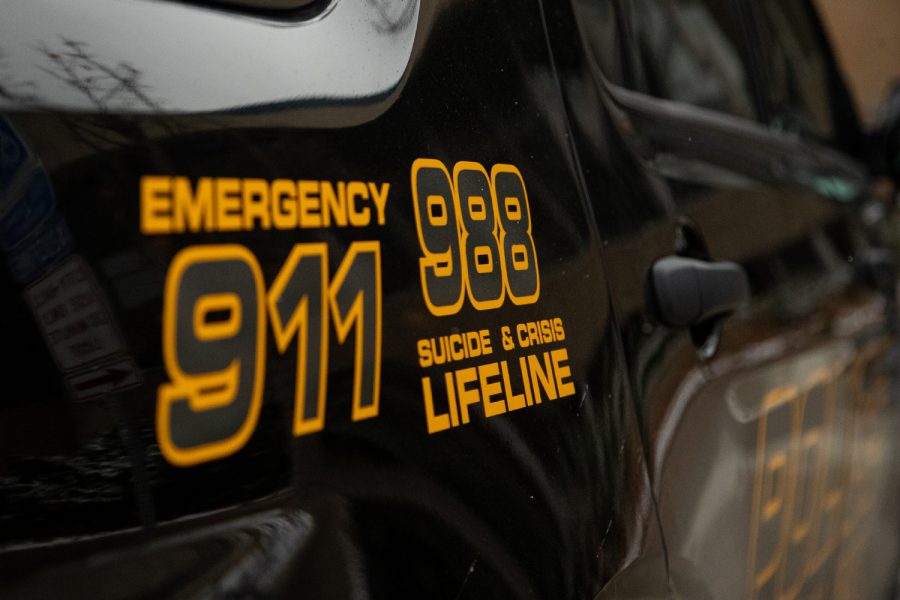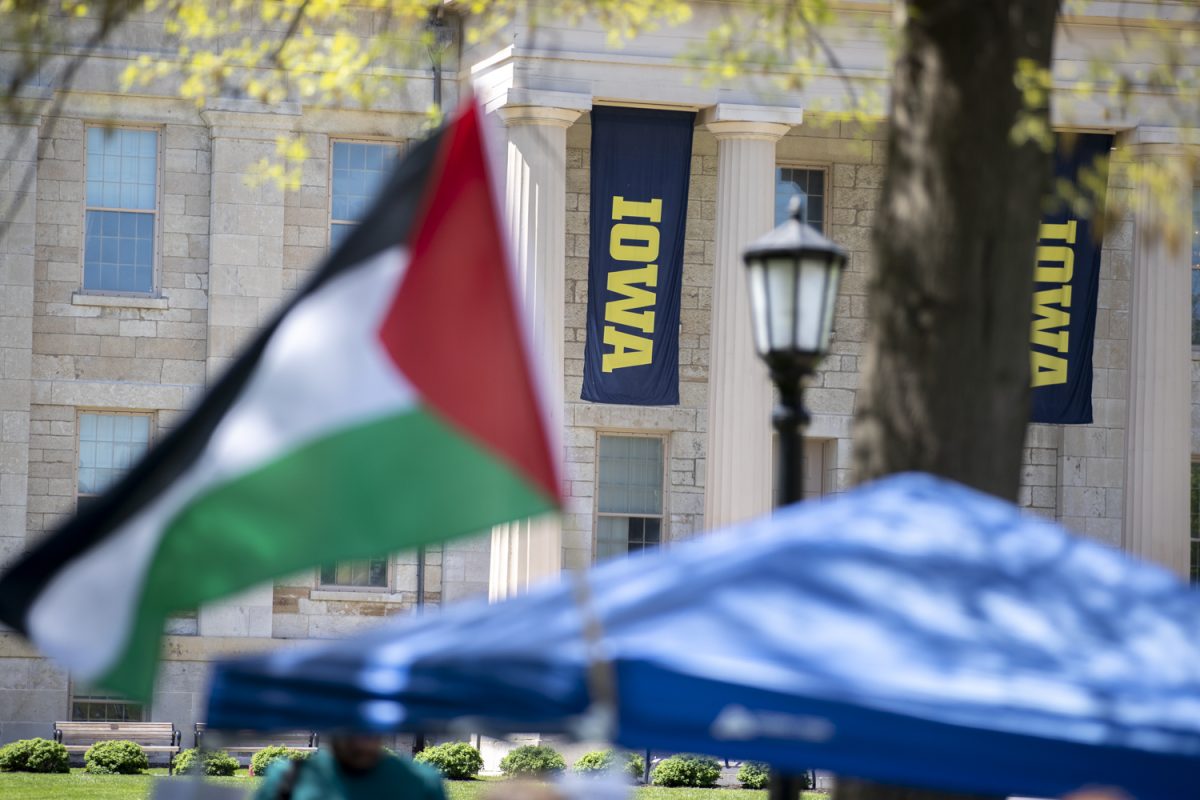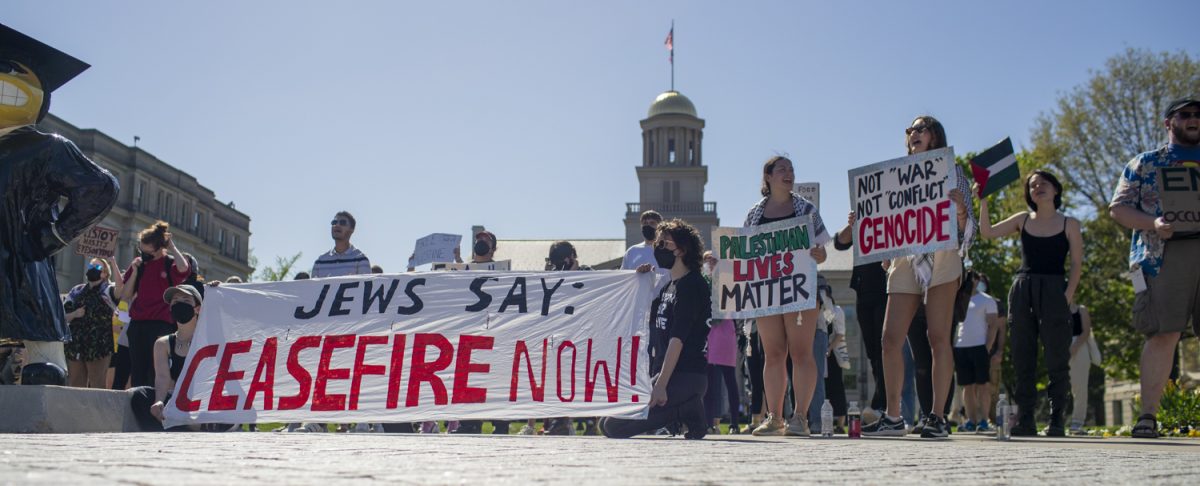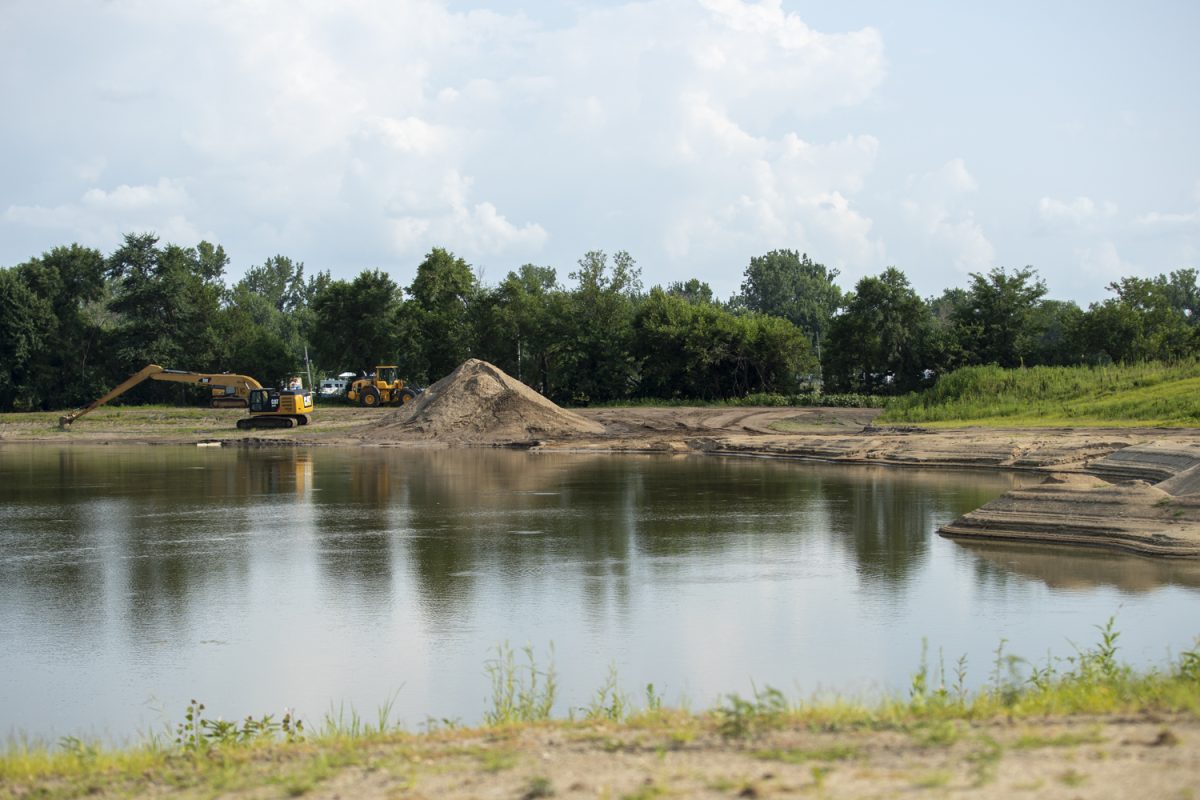Days following Iran’s missile and drone attack on Israel, some University of Iowa faculty say the conflict could cause the Israel-Hamas war to escalate.
In its first direct attack, Iran launched missile and drone strikes on Israel on the evening of April 13. The attack comes in retaliation to Israel’s April 1 strike on an Iranian Embassy in Syria, which killed seven members of the Islamic Revolutionary Guard Corps.
The attacks between Iran and Israel are connected to the larger Israel-Hamas war in Gaza, which started on Oct. 7 after Hamas attacked Israel, killing at least 1,200 people. Israel declared war on Hamas the same day and has continued to bombard the densely populated Gaza Strip with air and artillery strikes, killing over 30,000 civilians as of February.
Sara Mitchell, a UI political science professor, said Iran’s strike is part of the broader Arab-Israeli conflict that originated with the 1947 United Nations proposal for the partition of Israel and Palestine, followed by Israel’s territorial expansion and declaration of statehood.
Decades of Arab-Israeli conflicts ensued, Mitchell said, including the Yom Kippur War in 1973. Mitchell said Iran’s role in these conflicts has primarily been to fund proxy groups like Hezbollah to push for Palestinian statehood.
Mitchell said the April 13 attack is unique because it came directly from Iran, rather than through a proxy group, which raises concerns of further destabilization in the region and a broader war.
She said the real danger of escalation is that if Israel retaliates in a devastating way, Iran may give its Lebanon-based proxy group Hezbollah the green light to engage in attacks.
“Hezbollah is a very well-armed group,” Mitchell said. “So the issue for Israel is that they could be fighting on multiple fronts. They might move forces out of Gaza to the north to fight Hezbollah. Then that would allow Hamas to potentially reconstitute its forces.”
Brian Lai, the UI department chair of political science, said Iran’s attack shouldn’t have a direct impact on Israel’s approach to the conflict in Gaza, but that this attack has the potential to further destabilize the Middle East.
“Prior to this, Iran had struck at Israel through proxy actors in Syria and Lebanon, so that [Iran] was willing to directly attack Israel is kind of a new escalation,” Lai said. “I think that raises the potential for future conflict a little bit more.”
Lai said Israeli civilians still face security threats, especially from Iran and its allies. For Palestinians in Gaza, Lai doesn’t see their critical living standards improving at all, though the Iranian attack may impact Israel’s plan for the Palestinian territory.
“What this may do is make Israel dig in a little bit about what future they see for the Palestinian territories in particular,” Lai said. “They are concerned about Iranian support for groups in those areas, so they are probably going to have stricter demands about how they will be able to control those territories.”
Additionally, Lai said the Iranian attack complicates Israel’s goals in the Israel-Hamas war.
“The challenge they have is: How do they get to a Palestinian state that they’re okay with, that the Palestinians are okay with, and that the international community is okay with?” Lai said.
Considering the past several decades of conflicts and failed negotiations, Lai said he is unsure how this conflict may end in a peaceful outcome.
Thomas Lehmkuhl, a UI first-year student studying political science and history, was concerned by the Iranian attack on Israel, but not surprised given that Israel previously attacked an Iranian embassy. Lehmkuhl said the media has exaggerated the unpredictability of the attack, and the assignment of blame on Iran absolves Israel of wrongdoing.
“So far, Israel’s conduct of their war in Gaza seems to have been carried out with no regard for human life and international law,” Lehmkuhl said.
Lehmkuhl said he is against U.S. support for Israel, and that funding Israel is harming Palestinian lives in Gaza.
“Knowing my tax dollars have been and continue to be used to supply arms to a group that blatantly violates the rights of another group makes me upset,” Lehmkuhl said. “We cannot pretend to care about the founding principles of our nation and human rights if we do nothing in the face of injustices such as those occurring in the Middle East.”
Ibrahim Emirahmetoglu, a UI graduate student studying applied mathematics and computer sciences, doesn’t think the Iranian attack will affect the conflict in the region, nor does he think that it will change President Joe Biden’s foreign policy. Emirahmetoglu is critical of Biden’s involvement in the conflict.
“I don’t understand why the American government is so engaged with Israel,” Emirahmetoglu said. “It’s nonsense.”
Emirahmetoglu said he believes the extent to which Israel has attacked Gaza is unreasonable. He’s concerned for the lives and living standards of Palestinian civilians and described the Israeli approach to the war in Gaza as genocide.
RELATED: Iran launches missiles toward Israel, causing concern for more potential conflicts
“There is no red line for Israel. The land is promised for them, and the rest of the world. Palestinians are just details,” Emirahmetoglu said. “They’re going to continue until they get it.”
Pratibha Khatri, a UI third-year student studying international relations, said they are now interested in seeing other countries’ reactions to the Iranian attack.
Khatri said the U.S. approach to this conflict should be to prevent further escalation, which should have started during the 2021 Israel-Palestine Conflict. Now, Khatri thinks the best preventative approach for the U.S. to take is neutrality.
“This crisis needs to not become a war, and the easiest way for that to happen is not taking a side in the matter,” Khatri said. “When you look at both claims, both sides have strong claims to Gaza.”
Andrell Rodriguez, a UI third-year student studying creative writing, learned about the Iranian attack on Israel after his father texted him about it.
“My immediate reaction was: What’s going to happen next?” Rodriguez said.
Rodriguez said he is unsure what the future of U.S. foreign policy will look like. He said U.S. involvement isn’t likely to help stabilize the region.
“We know what needs to be done, but it’s still not happening,” Rodriguez said.











